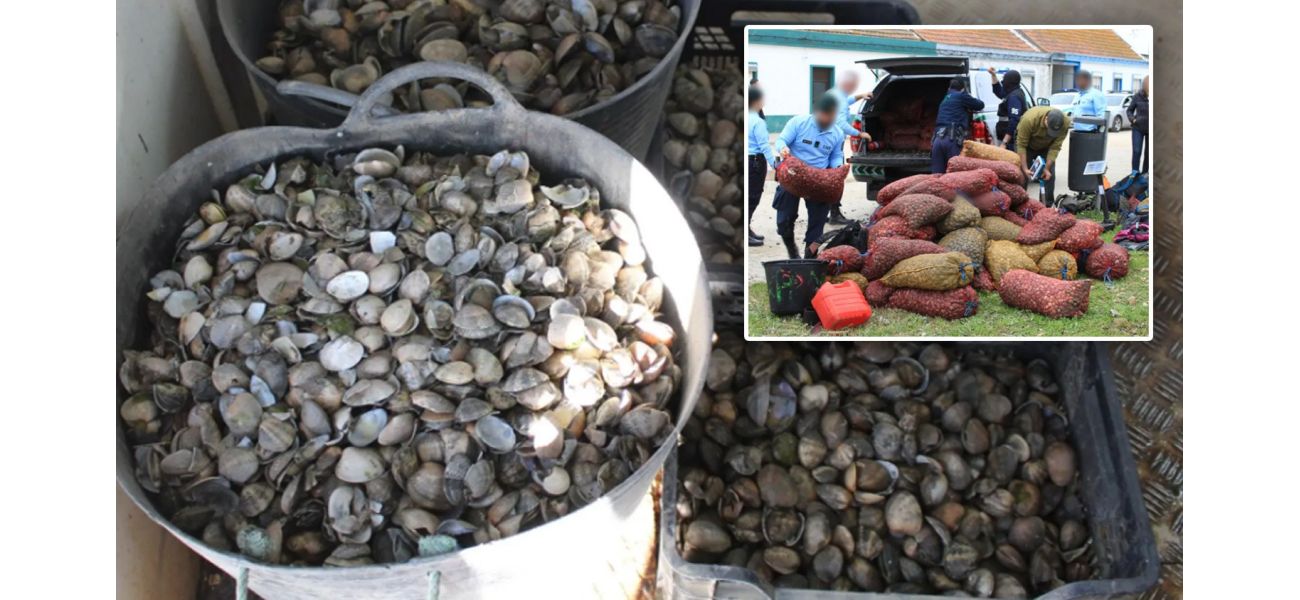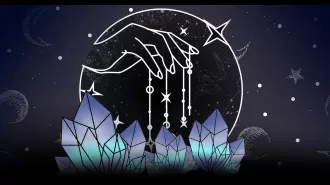£8m worth of tainted seafood confiscated from illegal organizations.
Bad seafood may have led to countless cases of food poisoning during the holiday season.
December 19th 2024.

Criminal gangs have been caught red-handed with tainted seafood, thanks to the efforts of Europol. More than 30 tonnes of contaminated seafood has been seized by European authorities, potentially saving millions of people from getting food poisoning during the festive season. This news comes after the release of footage by Spain's Guardia Civil, showing police officers seizing molluscs and six tonnes of glass eels worth up to 10 million euros on the seafood market. These delicacies, which can fetch up to £25 per kilo, were illegally harvested by organized criminal groups in Portugal and Spain.
It's shocking to learn that these gangs were exploiting Asian workers by paying them just pennies per kilo for molluscs fished in contaminated waters in Portugal. A total of 62 members of the group were arrested by Europol, with six of them identified as 'High-Value Targets'. The seized seafood was deemed unsafe for human consumption, which could have led to a serious public health alarm. Consuming contaminated molluscs puts people at risk of developing serious illnesses, including hepatitis.
The gangs primarily targeted Japanese clams, a popular Christmas dish in Spain and Portugal, and falsified documentation to present them as fit for consumption. This is the first proven crime in the European Union to combine environmental offenses and human trafficking, according to Europol. In a statement, the agency explained that the gangs would fish illegally in Portugal, send the molluscs to Spain, and then on to the criminal networks.
The vast difference between the price of the seafood on the market and the fishers' earnings raised suspicion and confirmed the link between environmental crime and human trafficking for labor exploitation. Europol's Environmental Crime Unit identified this criminal trend and provided their expertise to the Member States involved. They also facilitated operational meetings, coordinated action days, and offered financial support to national authorities.
During the action days, Europol experts were deployed on the ground in Portugal, Spain, and France. Thanks to their operational analysis, new 'High-Value Targets' were identified, leading to further investigations. It's a relief to know that these criminal gangs have been stopped, and the tainted seafood will no longer pose a threat to the health of consumers. Europol's efforts have not only prevented food poisoning but have also exposed the disturbing link between environmental crimes and human trafficking.
It's shocking to learn that these gangs were exploiting Asian workers by paying them just pennies per kilo for molluscs fished in contaminated waters in Portugal. A total of 62 members of the group were arrested by Europol, with six of them identified as 'High-Value Targets'. The seized seafood was deemed unsafe for human consumption, which could have led to a serious public health alarm. Consuming contaminated molluscs puts people at risk of developing serious illnesses, including hepatitis.
The gangs primarily targeted Japanese clams, a popular Christmas dish in Spain and Portugal, and falsified documentation to present them as fit for consumption. This is the first proven crime in the European Union to combine environmental offenses and human trafficking, according to Europol. In a statement, the agency explained that the gangs would fish illegally in Portugal, send the molluscs to Spain, and then on to the criminal networks.
The vast difference between the price of the seafood on the market and the fishers' earnings raised suspicion and confirmed the link between environmental crime and human trafficking for labor exploitation. Europol's Environmental Crime Unit identified this criminal trend and provided their expertise to the Member States involved. They also facilitated operational meetings, coordinated action days, and offered financial support to national authorities.
During the action days, Europol experts were deployed on the ground in Portugal, Spain, and France. Thanks to their operational analysis, new 'High-Value Targets' were identified, leading to further investigations. It's a relief to know that these criminal gangs have been stopped, and the tainted seafood will no longer pose a threat to the health of consumers. Europol's efforts have not only prevented food poisoning but have also exposed the disturbing link between environmental crimes and human trafficking.
[This article has been trending online recently and has been generated with AI. Your feed is customized.]
[Generative AI is experimental.]
0
0
Submit Comment





